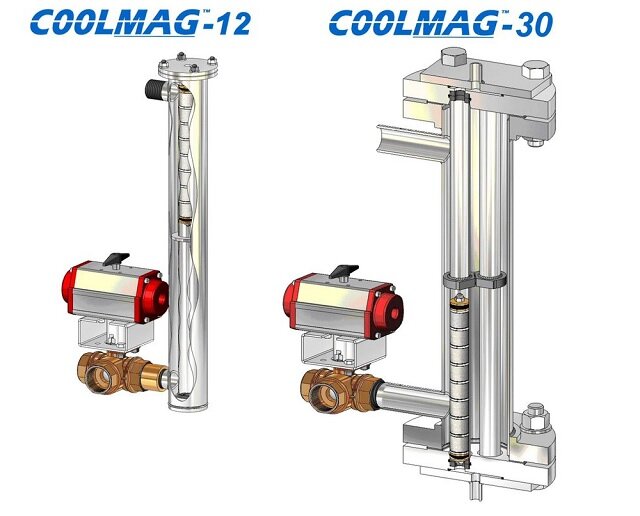Pros And Cons Of Magnetic Filtration Systems
Given that coolant in machines picks up metal shavings and shards, it stands to reason that magnetic filtration is an ideal solution for coolant systems. In many ways it is, but like any "solution" for anything, there's a certain amount of trading for a different set of problems.
To be sure, magnetic filtration is in many ways an ideal solution for coolant filtration in machining applications, so long as the shop that employs it is aware of what adopting a magnetic filtration system requires of them.
If you're considering a magnetic coolant filtration system there are some pros and cons you need to be aware of.
Drawbacks Of Magnetic Coolant Filtration
While magnetic coolant filtration is advantageous for obvious reasons (ferrous metal fragments are removed from coolant) there are some potential complications that need to be accounted for or that you should be aware of.
First is the issue of cleaning. Whereas other systems merely require the changing of a disposable filter, magnetic filtration systems employ a powerful magnet to attract magnetic metal particles. The exact nature of the magnet depends on the design; many employ a rod or rod-style battery of rare earth magnets, similar to stacked batteries in a flashlight.
For cleaning, the magnets have to be removed from the filtration system, cleared of all particles and then reinstalled in the filtration system. While not necessarily exorbitantly time consuming, it increases downtime relative to other filtration systems which might have a faster change operation. The plugs are also magnetic, which must also be cleaned periodically.
Non-magenetic particles can become transiently magnetic, which can adhere downstream from the filter, clogging or damaging parts of the filter or your machinery.
Magnetic systems filter particles by composition, rather than by size. Larger particles of metal or non-magnetic metals can wash downstream and clog the filtration system or even end up cycling back into machinery. Magnetic filtration is therefore of little use with non-ferromagnetic material. While they can be effective, magnetic filtration systems can't separate out particles down to the micron, which can be hazardous to many hydraulic systems.
Benefits Of Magnetic Filtration Systems
While there are limitations, there are also significant benefits IF a magnetic filtration system is suited to the intended application.
The magnet used in filtration only needs cleaning, meaning that it can be reused in perpetuity; there are far fewer consumables in a magnetic coolant filtration system compared to bag filtration and other filtration systems.
If you only use workpieces made of ferromagnetic materials or have a machine (or multiple machines) dedicated to only using workpieces of that composition, the inefficacy of magnetic filtration on other types of materials is thus a non-issue.
Since the magnet removes the particles from the fluid, coolant loss is minimal and thus extends the service life of coolant.
Another upside is that coolant flow isn't restricted if the magnet is loaded with particles. Unlike conventional filters that clog and reduce coolant flow, fluids stay in motion.
What many shops find is that if a magnetic filtration system is used in conjunction with a conventional mechanical filter, the best results of both systems are achieved. While neither is perfect, both filtration systems have advantages that should be considered.
If you would like to find out what kind of filtration system would be best for your shop, why not speak to an expert in these systems and how they work best for a metalworking shop? Contact us for a free consultation and quote!



